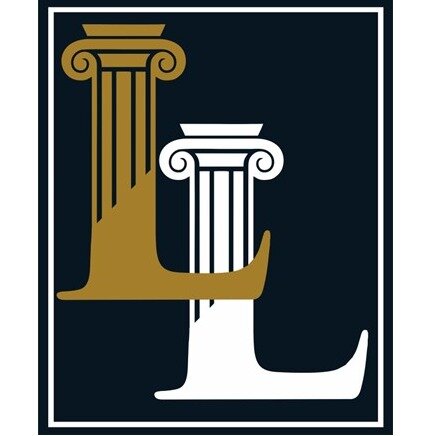Best Juvenile Law Lawyers in Manila
Share your needs with us, get contacted by law firms.
Free. Takes 2 min.
List of the best lawyers in Manila, Philippines
About Juvenile Law in Manila, Philippines:
Juvenile Law in Manila, Philippines pertains to the legal systems and processes that govern individuals who are considered minors. The Philippine Juvenile Justice and Welfare Act, also known as Republic Act 9344, focuses on the rehabilitation and reintegration of children in conflict with the law. This law aims to protect the rights of young people, promote their well-being, and provide intervention programs to prevent further delinquency.
Why You May Need a Lawyer:
You may need a lawyer in Juvenile Law cases if you are a minor facing legal charges, if you are a parent or guardian of a child in conflict with the law, or if you are involved in a child custody or support dispute. A lawyer can provide legal advice, represent you in court, and ensure that your rights are protected throughout the legal process.
Local Laws Overview:
In Manila, Philippines, the Juvenile Justice and Welfare Act governs cases involving minors who have committed offenses. This law emphasizes diversion programs, restorative justice, and rehabilitation rather than punishment. It also outlines the procedures for the apprehension, detention, and court proceedings for juveniles in conflict with the law.
Frequently Asked Questions:
1. What is the age of criminal responsibility in the Philippines?
In the Philippines, the age of criminal responsibility is 15 years old. Children below this age are exempt from criminal liability and are instead subjected to intervention and rehabilitation programs.
2. Can minors be detained in regular jails or prisons?
No, minors cannot be detained in regular jails or prisons. They should be placed in youth detention facilities or centers that cater specifically to juveniles in conflict with the law.
3. What are the rights of minors during legal proceedings?
Minors have the right to legal representation, the right to remain silent, and the right to be treated with dignity and respect during legal proceedings.
4. Can parents be held liable for the actions of their children?
Parents can be held liable for the actions of their children if they are found to have neglected their duty of supervision or guidance, leading to the commission of an offense by the child.
5. What are the possible interventions for juveniles in conflict with the law?
Possible interventions include diversion programs, counseling, community service, and rehabilitation programs aimed at addressing the root causes of delinquent behavior.
6. What is the role of the Department of Social Welfare and Development (DSWD) in juvenile cases?
The DSWD is responsible for providing support services to children in conflict with the law, including temporary shelter, counseling, and rehabilitation programs.
7. How can a lawyer help with a juvenile case?
A lawyer can provide legal advice, represent the minor in court, negotiate plea bargains, and ensure that the child's rights are protected throughout the legal process.
8. Can juveniles be sentenced to life imprisonment or death penalty?
No, juveniles cannot be sentenced to life imprisonment or death penalty under Philippine law. Rehabilitation and reintegration are the primary goals of the juvenile justice system.
9. What are the responsibilities of the local government units in implementing Juvenile Law?
Local government units are mandated to establish Juvenile Intervention and Support Centers to provide care and rehabilitation services to children in conflict with the law within their jurisdiction.
10. Can juvenile records be expunged or sealed?
Under certain conditions, juvenile records can be expunged or sealed to protect the privacy and future opportunities of the minor involved. A lawyer can help with the process of sealing or expunging juvenile records.
Additional Resources:
For more information, you can visit the Department of Social Welfare and Development (DSWD) website or contact the Juvenile Justice and Welfare Council for guidance on Juvenile Law matters in Manila, Philippines.
Next Steps:
If you require legal assistance in Juvenile Law cases in Manila, Philippines, it is advisable to consult with a knowledgeable and experienced lawyer who specializes in this field. They can provide you with the necessary guidance and representation to navigate the legal processes effectively.
Lawzana helps you find the best lawyers and law firms in Manila through a curated and pre-screened list of qualified legal professionals. Our platform offers rankings and detailed profiles of attorneys and law firms, allowing you to compare based on practice areas, including Juvenile Law, experience, and client feedback.
Each profile includes a description of the firm's areas of practice, client reviews, team members and partners, year of establishment, spoken languages, office locations, contact information, social media presence, and any published articles or resources. Most firms on our platform speak English and are experienced in both local and international legal matters.
Get a quote from top-rated law firms in Manila, Philippines — quickly, securely, and without unnecessary hassle.
Disclaimer:
The information provided on this page is for general informational purposes only and does not constitute legal advice. While we strive to ensure the accuracy and relevance of the content, legal information may change over time, and interpretations of the law can vary. You should always consult with a qualified legal professional for advice specific to your situation.
We disclaim all liability for actions taken or not taken based on the content of this page. If you believe any information is incorrect or outdated, please contact us, and we will review and update it where appropriate.











